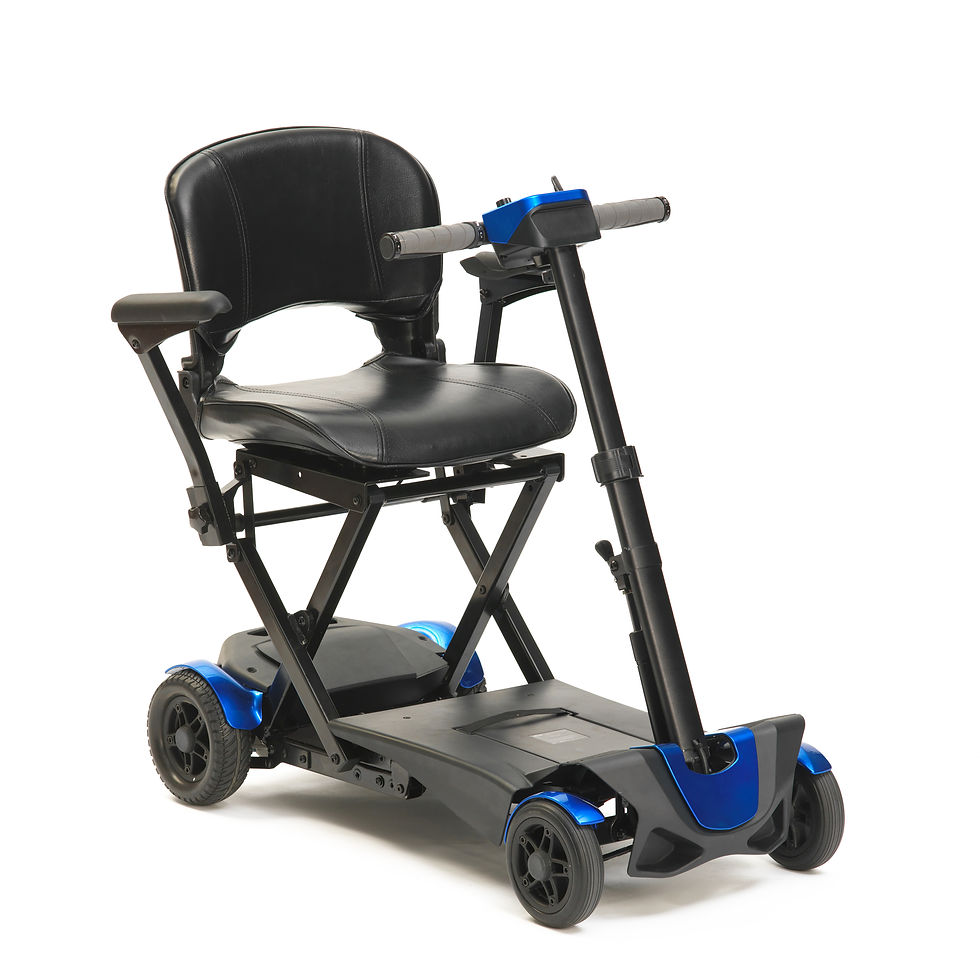Living with Limited Mobility: How Small Aids Make a Big Impact
- Ollie Churchill
- Oct 14, 2025
- 2 min read
Limited mobility can make everyday tasks feel like constant challenges. From getting out of bed to walking to the kitchen, even the smallest obstacles can reduce confidence and independence. The good news is that you don’t always need big, expensive equipment to make a real difference. Small mobility aids can have a surprisingly powerful impact on daily life.

Why Small Aids Matter
Mobility aids are often thought of as large pieces of equipment like scooters or rise and recline chairs. While these are life-changing for many, smaller aids often get overlooked. Yet they provide immediate support, boost confidence, and can be easily integrated into daily routines.
Benefits include:
Improved safety by reducing the risk of falls
Greater independence with less reliance on others
Affordable support compared to larger mobility products
Ease of use with simple designs an
quick results
Everyday Tasks, Made Easier
1. Walking Sticks and Canes
These simple aids provide stability and balance, helping to reduce strain on joints. Adjustable options ensure the right fit for each individual.
2. Grab Rails and Handles
Installed in bathrooms, hallways, or near steps, they give extra security where slips are most likely.
3. Bed and Chair Risers
Raising the height of a bed or chair can make sitting and standing much safer and more comfortable.
4. Reachers and Grabbers
Picking up dropped items or reaching high shelves becomes possible without bending or stretching dangerously.
5. Non-Slip Mats
A low-cost but essential aid for bathrooms and kitchens, cutting the risk of slips on wet floors.
The Psychological Benefits
It’s not just about the physical support. Small aids can also:
Boost confidence to move around more freely
Reduce feelings of dependence on family or carers
Encourage more social interaction by making outings easier
For many people, knowing they have that extra bit of support makes them more willing to leave the house and stay active.
When Small Aids Are the Smartest Choice
Not every challenge requires a large or complex mobility product. In many cases, smaller aids are:
More practical for temporary injuries or early stages of mobility decline
Easy to travel with compared to bulkier equipment
Ideal for prevention by supporting independence before major problems develop
Living with limited mobility does not mean giving up independence. Small aids like walking sticks, grab rails, and reachers can transform daily life, offering safety, comfort, and confidence.





Comments